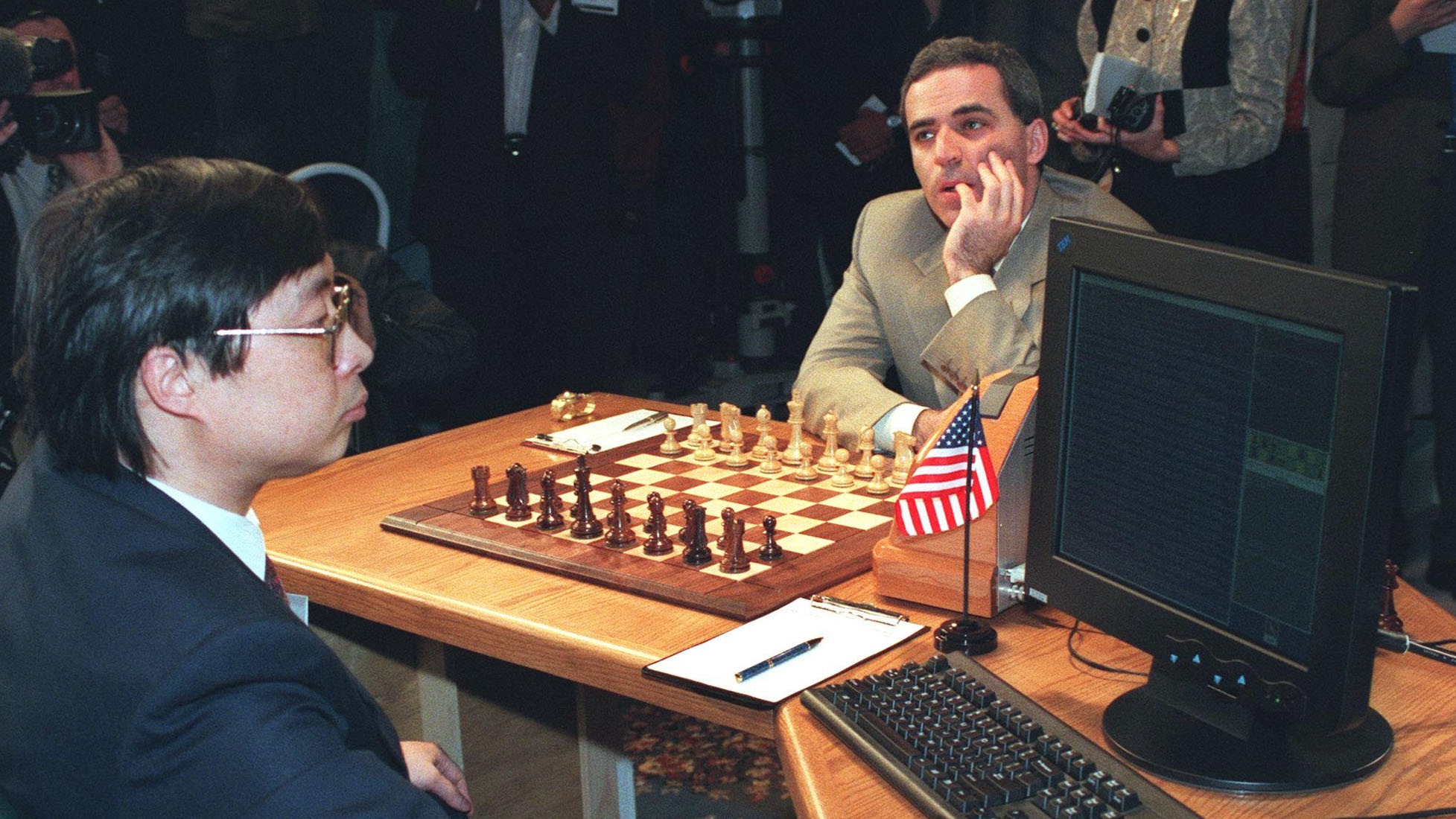
Are computers ruining chess?

A cheating scandal rocking the chess world over the past month has sparked debate about the role of artificial intelligence in high-level competition.
Last month, five-time world chess champion Magnus Carlsen dropped out of a tournament after playing just one move against rising teenage star Hans Niemann. Later, Carlsen formally accused Neimann of cheating, escalating a controversy that had been brewing for weeks.
This week, the online chess platform Chess.com released a 72-page report saying Niemann “likely cheated” in more than 100 online chess games, but it lacked “concrete statistical evidence” to say whether Neimann has cheated in in-person, over-the-board matches.
In a recent article for The Atlantic headlined “Chess Is Just Poker Now,” assistant editor Matteo Wong explored how Niemann could have used artificial intelligence software to cheat in matches and discussed the role computers play in high-level chess today. The following is an edited transcript of Wong’s conversation with “Marketplace” host Kai Ryssdal.
Matteo Wong: So the basic idea is that chess-playing artificial intelligence, which are known as “chess engines,” are significantly better at this point than any human. And so if you got directions from them — even for just a couple of critical points in the game — that would give you a huge advantage. A lot of the ideas that have been floated around are vibrating devices like electronic shoe inserts, things of that sort. Some people I’ve talked to even said that, like, it wouldn’t need to give a precise move, just some sort of signal would be enough to help them find the best play.
Kai Ryssdal: Can we talk for a second about these chess engines — which, you know, cards on the table, as it were, to mix my games — is a new expression for me. The last [time] probably that a whole lot of people outside the chess world paid attention to artificial intelligence and chess, it was back when IBM had the Big Blue or Deep Blue, or whatever it was, that finally beat a human. I imagine now, with AI everywhere, it’s orders of magnitude more sophisticated, what computers can do.
Wong: Yeah, so Deep Blue defeated then-champion Garry Kasparov in 1997. And that was a huge deal. But that machine was on a suit like a 3000-pound supercomputer in a research lab at IBM. Over the next 10 years or so, there are a lot of advancements in both hardware and software, and so you get to a point where artificial intelligence — a chess engine — running on a standard desktop can beat the world’s top players.
Ryssdal: I need to ask you about a another phrase that I learned from this piece, and it goes to the competitiveness but also the gradations of improvement. There are these things now in chess scoring called “centipawn.” What are those?
Wong: Right. Yeah, this is another example of just how much computers could dominate humans. When you are trying to evaluate how well a chess player has done in a match, people will often compare their moves to what a much better chess engine would have done. And there’s sort of a calculation that determines how many hundredths of a pawn the player would have lost compared to what the computer would have done, which is a centipawn. And so, a lot of the speculation about whether or not Hans Neimann has cheated has been back and forth about whether or not he played too much like a computer or not. I don’t have the expertise to weigh in there.
Ryssdal: Yeah, if you don’t, I sure don’t. So let me ask you a completely subjective question here. I don’t know if you’re a baseball fan —
Wong: I am.
Ryssdal: OK. So, a generation ago, maybe a little more, this whole idea of sabermetrics came up, right? This idea of quantifying virtually everything that happens on a baseball field. And so, you can sort of track it and figure out which player is going to be better at third base or whatever, right? My contention is that that just takes the romance out of the game. I am roundly criticized by my friends when I say that, but that’s my stand. Do you think the idea of centipawns and AI in chess kind of takes the romance out of chess?
Wong: I don’t think entirely. I think there’s the view that it’s more and more memorizing that, you know, chess is more and more like a spelling bee. And I think that’s definitely true and has increased a lot. But I also think that there was another change that came in 2017. And that’s when Google released this program called AlphaZero. And AlphaZero was a neural net-based artificial intelligence that basically just played itself and after four hours, based on playing itself, became better than the best existing chess-playing software. And so, there’s a way of looking at it and saying that has unlocked new dimensions to the game. And there’s another way of looking at it that says, you know, if humans are taking a lot of the cues from these neural net-based algorithms, then what are they really creating?
Ryssdal: Yeah. I’m going with that second one. So have you downloaded some of these engines and played them? I’m assuming you’re a chess player, right?
Wong: I do play some chess. I’m not that good (laughter), so I haven’t experimented that much with them. I probably should, honestly.
There’s a lot happening in the world. Through it all, Marketplace is here for you.
You rely on Marketplace to break down the world’s events and tell you how it affects you in a fact-based, approachable way. We rely on your financial support to keep making that possible.
Your donation today powers the independent journalism that you rely on. For just $5/month, you can help sustain Marketplace so we can keep reporting on the things that matter to you.

















